Frequently Asked Questions for Bankruptcy Cases
What do I bring to the bankruptcy appointment or interview with the lawyer?
- You need to bring documents to show your assets and liabilities: deeds, leases or land contracts; motor vehicle titles; insurance policies, income tax returns for the past two years, stock certificates, bonds, Social Security card, bank statements for the past three to six months (checking and savings), records of all loan transactions.
- You should make a list of your creditors showing the exact name and address, and zip code of each creditor and the amount owed to each creditor, including your account number with each creditor.
- You should make a list of your real and personal property showing the condition and value of each item of property.
- Write down the income and the income of your spouse
- Write down the name and age of your dependents
- Write down all your fixed expenses
What topics are covered in the interview with the lawyer?
The initial client meeting typically involves an analysis of three basic areas:
- Whether you have non-exempt assets and if they might be legitimately converted into exempt assets
- Which debts are subject to discharge and whether certain creditors may object to the discharge
- Whether your income and expenses, and contributions from household members result in being eligible to file bankruptcy.
Why should my spouse come to the interview with me?
You may want to bring your spouse with you to the interview with the lawyer since the lawyer may recommend that both spouses file bankruptcy jointly. If both you and your spouse own a home together as a tenancy by the entirety, this could affect whether both of you file together and also which chapter you use, either chapter 7 or 13. Tenancy by the entirety issues can be very serious for both spouses. Sometimes, both spouses need to file together so that the exemptions will be doubled to help protect property. In addition, one spouse may know something the other does not about the financial affairs of both.
Why does my bankruptcy attorney want so much stuff from me?
Most of the things your lawyer wants from you go into the bankruptcy petition that has to be filed with the Court. If the petition is not complete, you could get a deficiency for a faulty filing and your case may not go forward. The things that are required to go into the petition are required by the Court. The lawyer is trying to make sure that you are following the rules of the Court so that you can get a discharge of your debts. This is not Burger King. You do not get to have it your own way! You are asking the Court to help you, in return, you have to follow the Court’s rules.
In addition to the above, the attorney’s signature on the petition constitutes a certification that the attorney has no knowledge after an inquiry that the information in the petition is incorrect. 11 U.S.C.A. Section 527(b)(4)(D). Therefore, the attorney is required to ask questions about your property, income, assets, and is required to gather documents that represent your true financial condition. The documents are used to support what you have stated in the bankruptcy petition filed with the Court. You and your attorney should work together to present your true financial condition to the Court, while at the same time protecting your property from loss to creditors.
What happens to my income when I file for Bankruptcy?
In a Chapter 7 case, your future earnings cannot be taken by the trustee to pay your creditors. This is because your future earnings in a Chapter 7 case are not property of the bankruptcy estate.
- In a Chapter 13 case, your future earnings are taken by the trustee to pay your creditors. This is because your future earnings in a
- Chapter 13 case are property of the bankruptcy estate. Sometimes people do not realize the significance of turning their income over to the trustee for three (3) to five (5) years.
What is a 341 meeting?
The 341 meeting is a meeting of the creditors in your case. It is a way for the Court to give the creditors in your case an opportunity to be heard. All debtors must attend this meeting. The meeting is held without a judge and usually occurs around a month after the filing of the bankruptcy petition. The Trustee that has been assigned by the Court is in charge of the meeting. The debtor is required to answer questions under the penalty of perjury (the debtor must swear or affirm to tell the truth) about the debtor’s conduct, property, liabilities, financial condition or any other issue affecting the case. The meeting usually lasts 5-10 minutes.
What happens to my credit score after filing for Bankruptcy?
If you have a good credit score, filing for bankruptcy will probably cause your credit score to fall in a big way. However, if you are in a position to be thinking about filing bankruptcy then you probably already have a bad credit score. The following things are signs that you already have a poor credit rating: making only minimum monthly payments on your credit cards, reaching the limit on your credit cards, turned down for loans or credit cards or having debt that is very high compared to the value of your assets. Filing bankruptcy might make a poor credit score very slightly worse in the short term, but in the long term, your credit score will improve, sometimes within a year of filing. This is because bankruptcy will “clear out” your debts allowing you to have a fresh start.
How soon can I obtain credit after filing for bankruptcy?
A bankruptcy filing can stay on your credit report for up to 10 years, but this does not mean you can’t get credit for 10 years. In fact, you may start to get credit offers soon after filing for bankruptcy. Be careful. These companies that offer credit to a debtor soon after the bankruptcy filing know that the debtor cannot file for bankruptcy again for another 8 years (in the case of a Chapter 7) and the interest rates from these types of creditors will be very high. It would be better to go slowly with credit just after a bankruptcy. It is better to get a very small amount of credit in the beginning even if at a higher rate just for the purpose of establishing a good payment history. After a good payment history of 18-24 months, the debtor will begin to qualify for most types of loans at competitive rates.
Can I protect my Co-debtor?
If you are trying to protect someone who is liable with you on a debt obligation as a co-debtor, you may want to consider the possibility that the co-debtor will be given more protection if you file for Chapter 13 instead of Chapter 7. If you have 2 people that have signed on a loan together as co-debtors and one of those persons files for Chapter 7 – sure, the person filing for bankruptcy can probably get a discharge on the debt, but what about the person that didn’t file for bankruptcy? The person that didn’t file for bankruptcy is still liable for the debt they co-signed on. There would probably be a strain in the relationship between the two co-debtors.
Another option for the debtor filing a Chapter 7 who wants to protect a co-debtor may be to reaffirm the debt and keep paying at the agreed upon interest rate, thereby keeping the debt from being discharged. This will protect the co-debtor from any creditors on that particular debt. And as mentioned earlier, a Chapter 13 will also protect a co-debtor from any creditors.
Can I keep my house if I file for Bankruptcy?
This is why some people will file for Chapter 13 instead of Chapter 7. They are unable to save their home if they file a Chapter 7 because they have too much equity in their home – exemptions will not cover the equity.
First question is: how much equity do you have in your home? The short answer is that you can keep your home if the equity in your home is fully exempt. In other words, if your home equity is less than the North Carolina state homestead exemption, then you will be allowed to keep your home. In North Carolina, the homestead exemption for one debtor is up to $35,000. However, North Carolina does allow doubling of exemptions – this means that a married couple filing jointly could protect up to $70,000 of equity in their home.
If a home is owned by a husband and wife together as a “tenancy by the entirety,” the home may be protected from the creditors of one spouse. It is not necessary for both spouses to file bankruptcy together in order to use this exemption.
If you are filing a Chapter 7, you must be current on your mortgage payments on the date that you file for Bankruptcy and remain current. If you are filing a Chapter 13, you do not have to be current on your mortgage payments before filing for Bankruptcy. There are ways of catching up on the payments thru a Chapter 13, even if your house has gone into foreclosure.
If you want to file a Chapter 7 but have excess equity in your home, you may be forced into a Chapter 13. You have to have enough regular income to fund a Chapter 13 plan for 3-5 years.
Can I keep my car if I file for Bankruptcy?
In general, yes, you can keep your car. However, what you must do to keep the car in a Chapter 7 varies depending on if there is nonexempt equity in the car. Nonexempt equity is the amount of equity you have in the car that is not covered by an exemption. The exemption amount for one motor vehicle is $3,500.00 in North Carolina. However, there is a wildcard exemption and a personal property exemption that might be used in addition to the regular motor vehicle exemption for a total of up to $9,000.00 – under certain circumstances. The idea is to exempt as much of the equity as possible.
If there is no equity in the motor vehicle, after subtracting any car loan and exemption from the car’s present sale value, the trustee will not take the car. If there is equity in the car over and above the exemption amount, it is possible for the debtor to buy the unprotected equity from the Chapter 7 trustee. In the real world, a Chapter 7 debtor is not going to have extra money to buy the unprotected equity from the trustee. If a Chapter 7 debtor had extra money for such things, they would not be a Chapter 7 debtor in the first place. This is why it is a good idea for the average Chapter 7 debtor to have one reliable older model vehicle.
If you owe money on the vehicle and your equity is less than the exemption amount, you could reaffirm the debt and keep the vehicle, just as long as you keep making payments on the vehicle, even in a Chapter 7 case. In a Chapter 13, you may be allowed to repay your vehicle loan at a more affordable rate or at a reduced value.
Under a Chapter 7 case if you can’t make a lump-sum payment required for redemption of a car or truck under Section 722, it may be possible to file Chapter 13 and use the Chapter 13 as a means of redeeming the vehicle by installment payments.
Can I convert from Ch 13 to Ch 7?
You have a right to convert your Chapter 13 to a Chapter 7 if you are eligible for a Chapter 7. Why would you want to convert your chapter 13 bankruptcy case to a chapter 7 bankruptcy case?
Some of the common reasons are:
- You can’t pay the Chapter 13 Trustee your monthly Trustee payment.
- You can’t make your mortgage payment.
You can’t make your car payment. - You just want the case over – Yes, 3 to 5 years in a Chapter 13 can be a very long time!
- Remember, you must qualify for a Chapter 7 in order to convert from a Chapter 13 to a Chapter 7. If you are having problems completing a Chapter 13 plan, then there are other options open to you other than just conversion. You may be able to modify your Chapter 13 plan if feasible or you may qualify for a hardship discharge. Usually, a modification of a Chapter 13 plan involves asking that your payments be lowered and possibly extending the time in which to pay. A hardship discharge involves filing a motion with the Court asking for a discharge of your debts even though you can’t complete your Chapter 13 plan. If it looks as though a modification of your Chapter 13 plan is feasible, then you will not be allowed to do a hardship discharge under your Chapter 13 plan. In other words, the Bankruptcy court prefers a modification instead of a hardship discharge.
Why did the Government invent the means test if it is so difficult to apply?
This is what they do. The government’s objective in creating the means test was to create a mathematical formula that decided abuse instead of having a judge decide abuse. In other words, the government wanted to take the human personal touch out of the process in deciding if there is abuse in a Chapter 7 filing. Formal mathematical calculations are substituted for judicial discretion. This means testing may be viewed as a way of keeping you from filing a Chapter 7 bankruptcy if your income is equal to or above the median income for North Carolina. This process acts as a funnel to force above-median income debtors to file for Chapter 13 bankruptcy instead of Chapter 7 bankruptcy. The government thinks that if your income is above the median income figure, then it could be an abuse of the law for you to be allowed to file Chapter 7. There are exceptions to this rule that normally involve the debtor’s reasonable expenses which can complicate the means test.
What Our Clients Say:
Member:

Attorney Gregory Kornegay
Greg is a trial attorney in Wilmington with over 30 years of experience. Greg was born and raised in southeastern North Carolina. Before law school he managed a store with employees making a payroll every week. His first job out of law school was as an Assistant District Attorney investigating and trying cases for the State of North Carolina. Through the years he has handled many different types of cases – including death penalty cases.
Being married with children has been a blessing and a challenge, but has served him well in understanding the problems individuals and families face as they live out their lives. Greg believes that each case is different and the needs of each client are unique, but there are certain themes of life that we all share.


